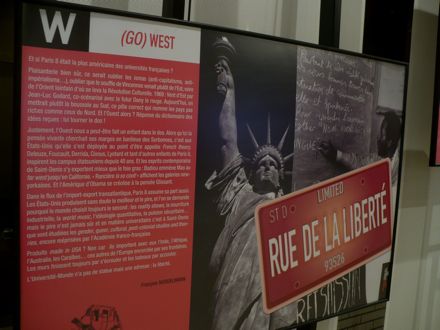Sapir wrote in 1924 in a splendidly titled article, “Culture, Genuine and Spurious“:
The whole terrain through which we are now struggling is a hotbed of subjectivism, a splendid terrain for the airing of national conceits. For all that, there are a large number of international agreements in opinion as to the salient cultural characteristics of various peoples. No one who has even superficially concerned himself with French culture can have failed to be impressed by the qualities of clarity, lucid systematization, balance, care in choice of means, and good taste, that permeate so many aspects of the national civilization. These qualities have their weaker side. We are familiar with the overmechanization, the emotional timidity or shallowness (quite a different thing from emotional restraint), the exaggeration of manner at the expense of content, that are revealed in some of the manifestations of the French spirit. Those elements of French civilization that give characteristic evidence of the qualities of its genius may be said, in our present limited sense [of culture not as high culture nor as all of a people’s traditions but as the practiced ‘genius’ of a civilization], to constitute the culture of France; or, to put it somewhat differently, the cultural significance of any element in the civilization of France is the light it sheds on the French genius.
From this standpoint we can evaluate culturally such traits in French civilization as the formalism of French classical drama, the insistence in French education on the study of the mother-tongue and of its classics, the prevalcence of epigram in French life and letters, the intellectualist cast so often given to aesthetic movements in France, the lack of turgidity in modern French music, the relative absence of the ecstatic note in religion, the strong tendency to bureaucracy in French administration. Each and all of these and hundreds of other traits could be readily paralleled from the civilization of England. Nonetheless their relative cultural significance, I venture to think, is a lesser one in England than in France. In France they seem to lie more deeply in the grooves of the cultural mold of its civilization. Their study would yield something like a rapid bird’s-eye view of the spirit of French culture.






